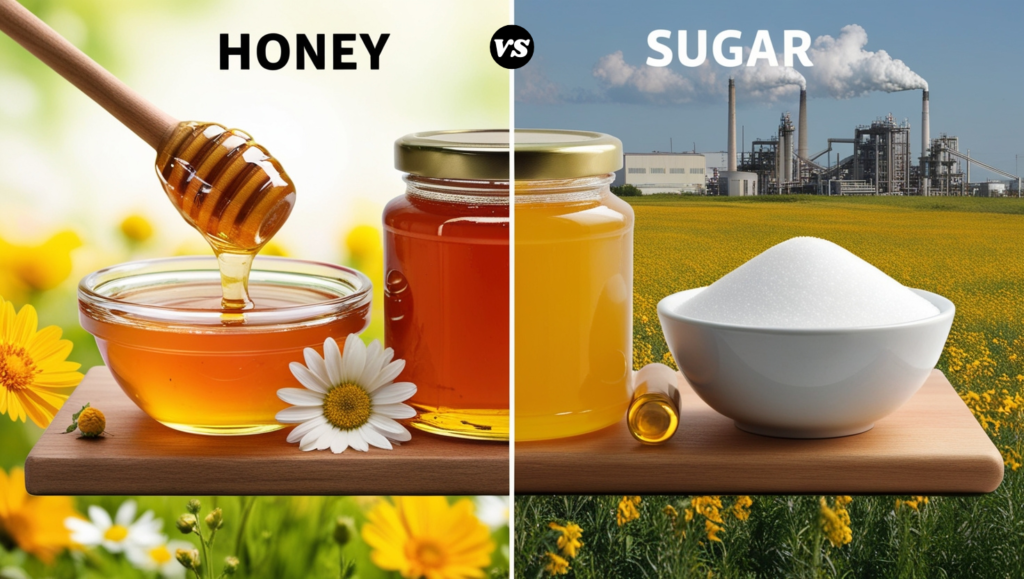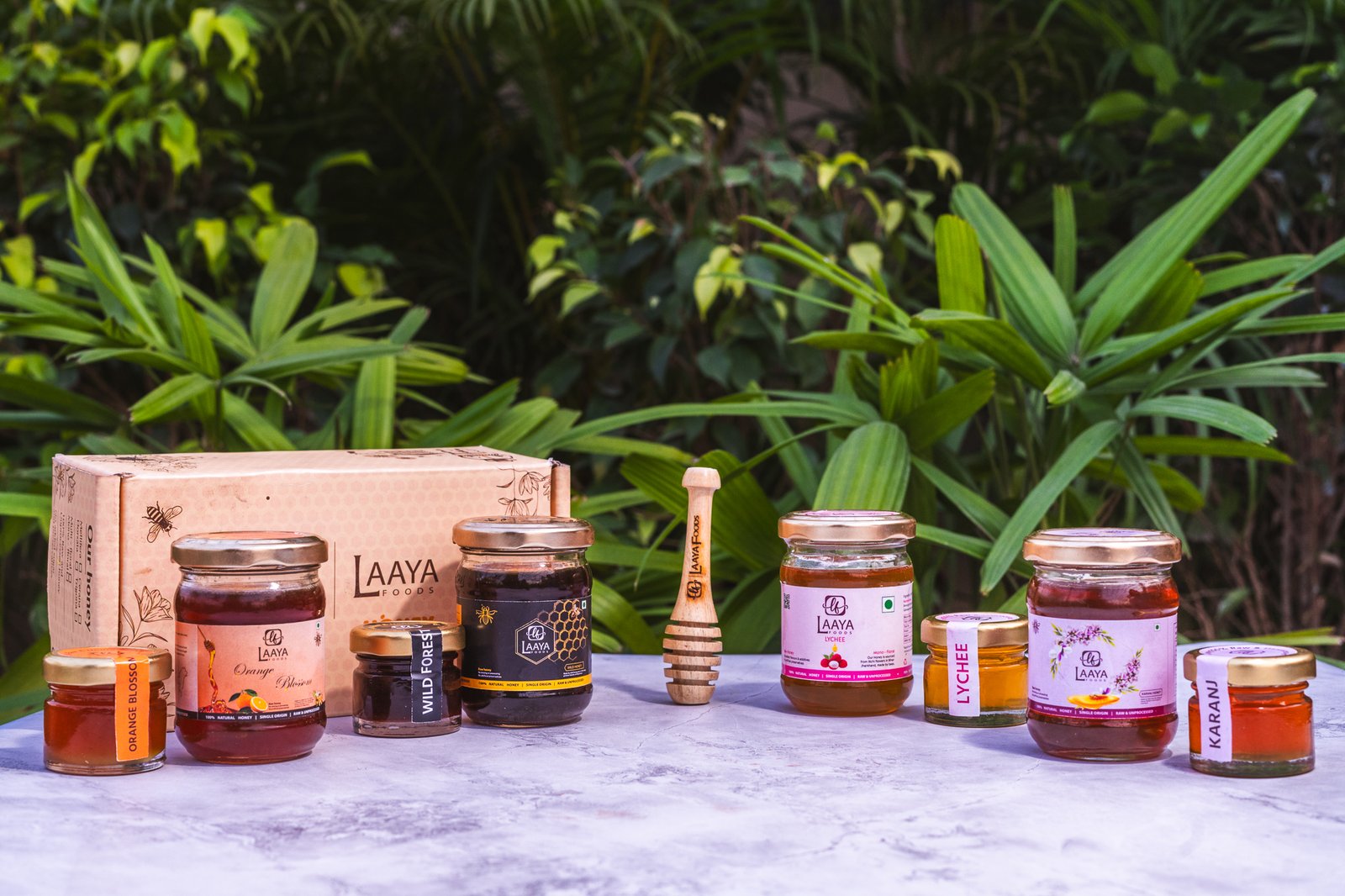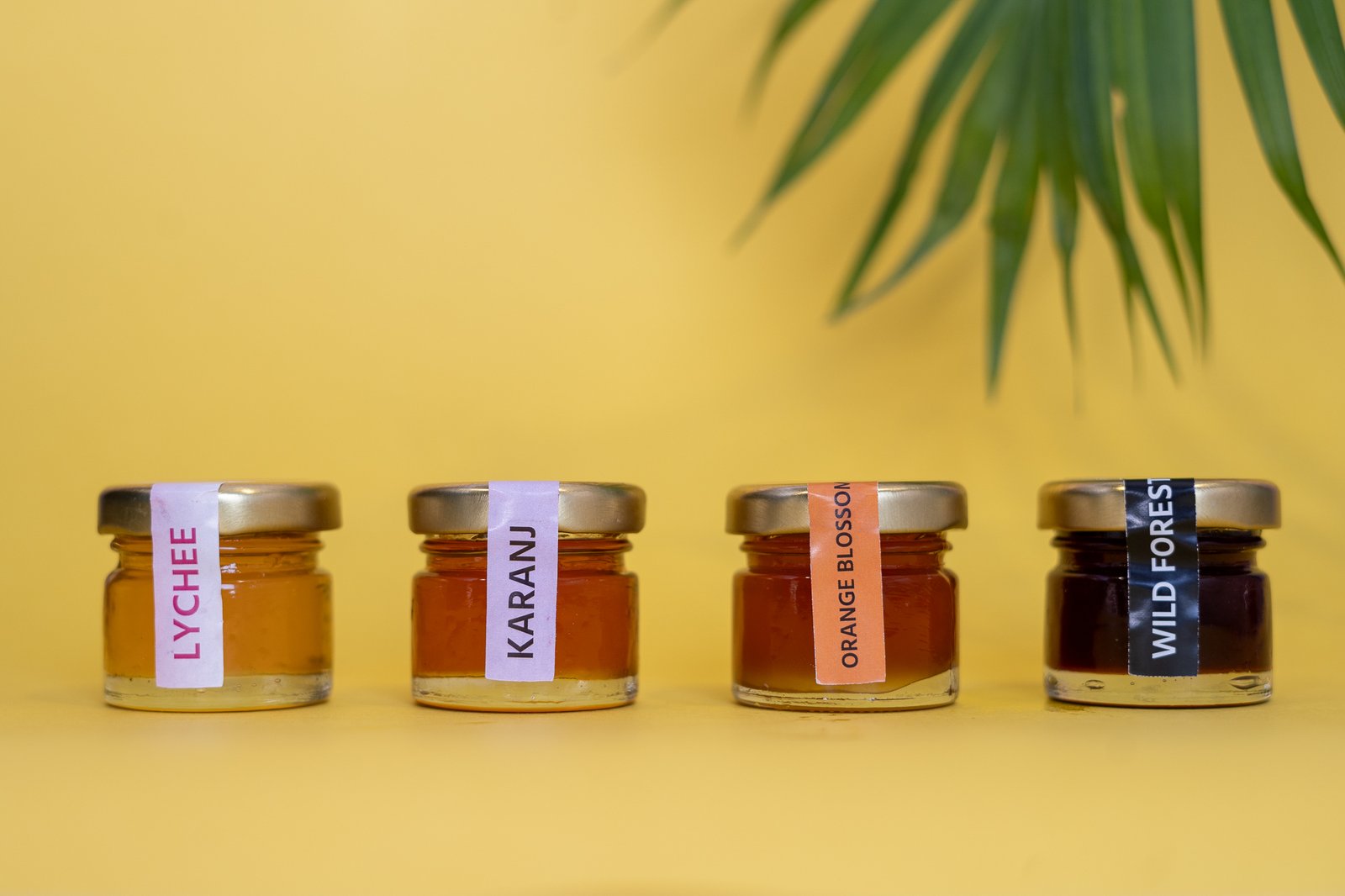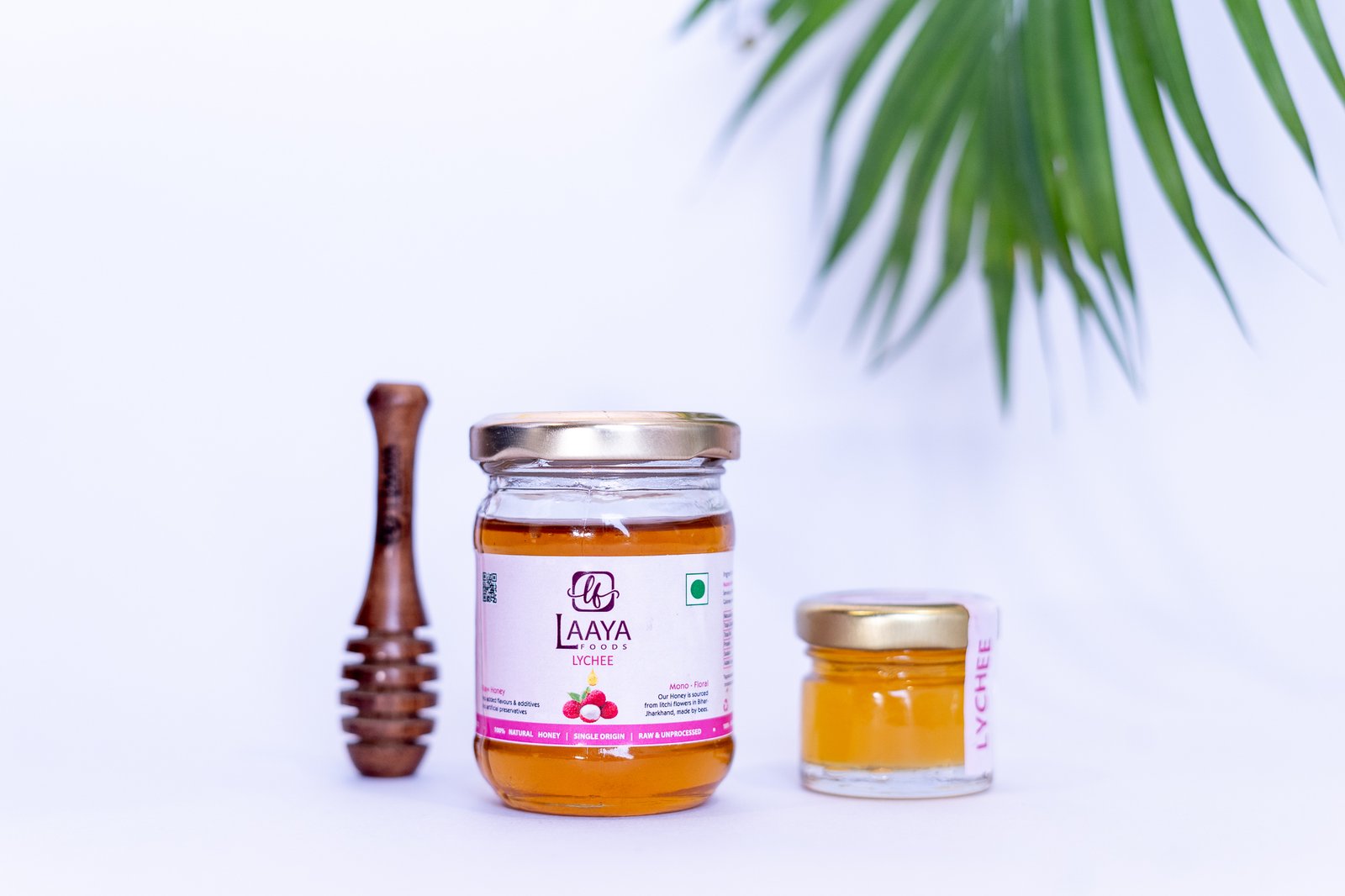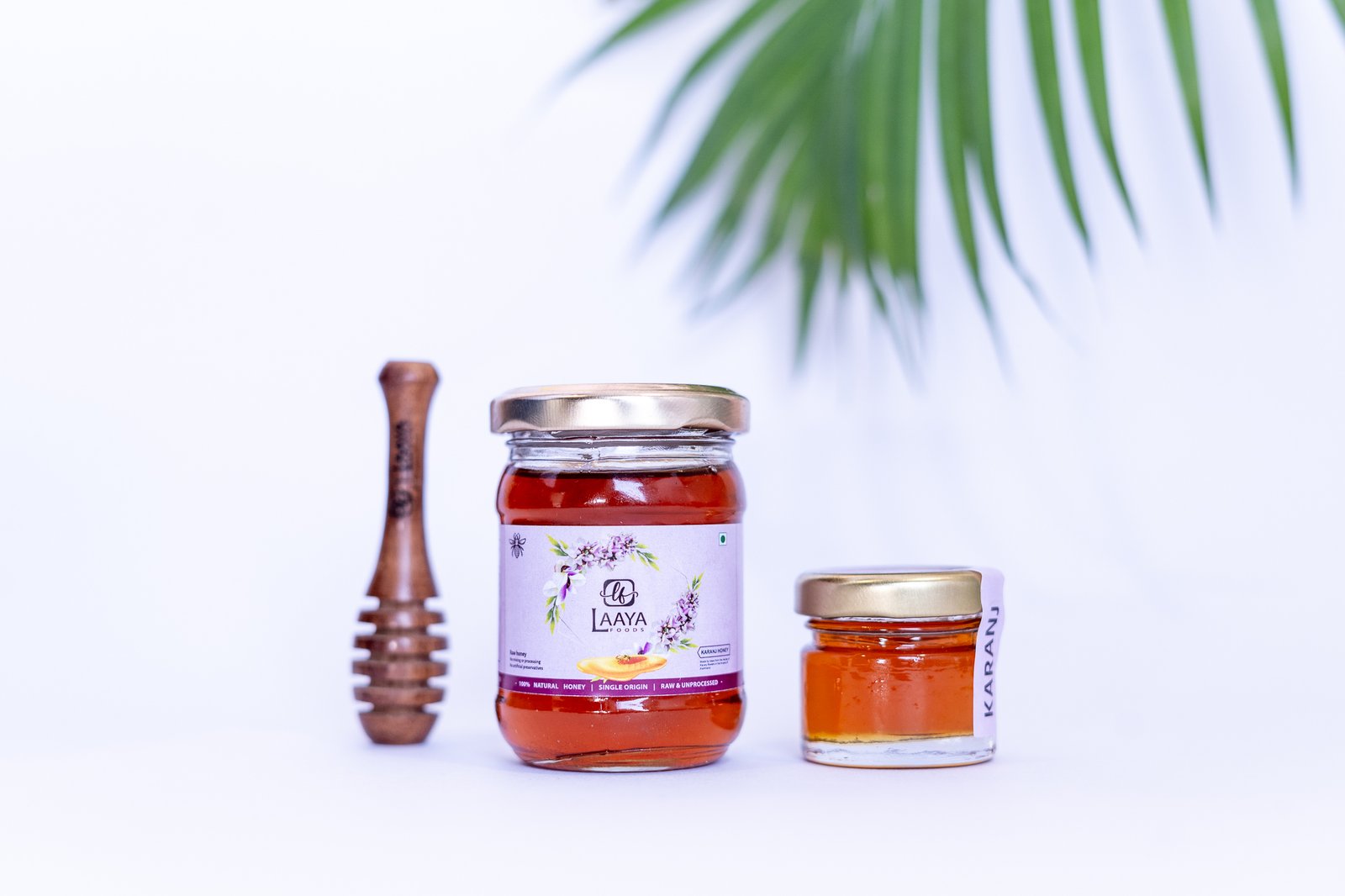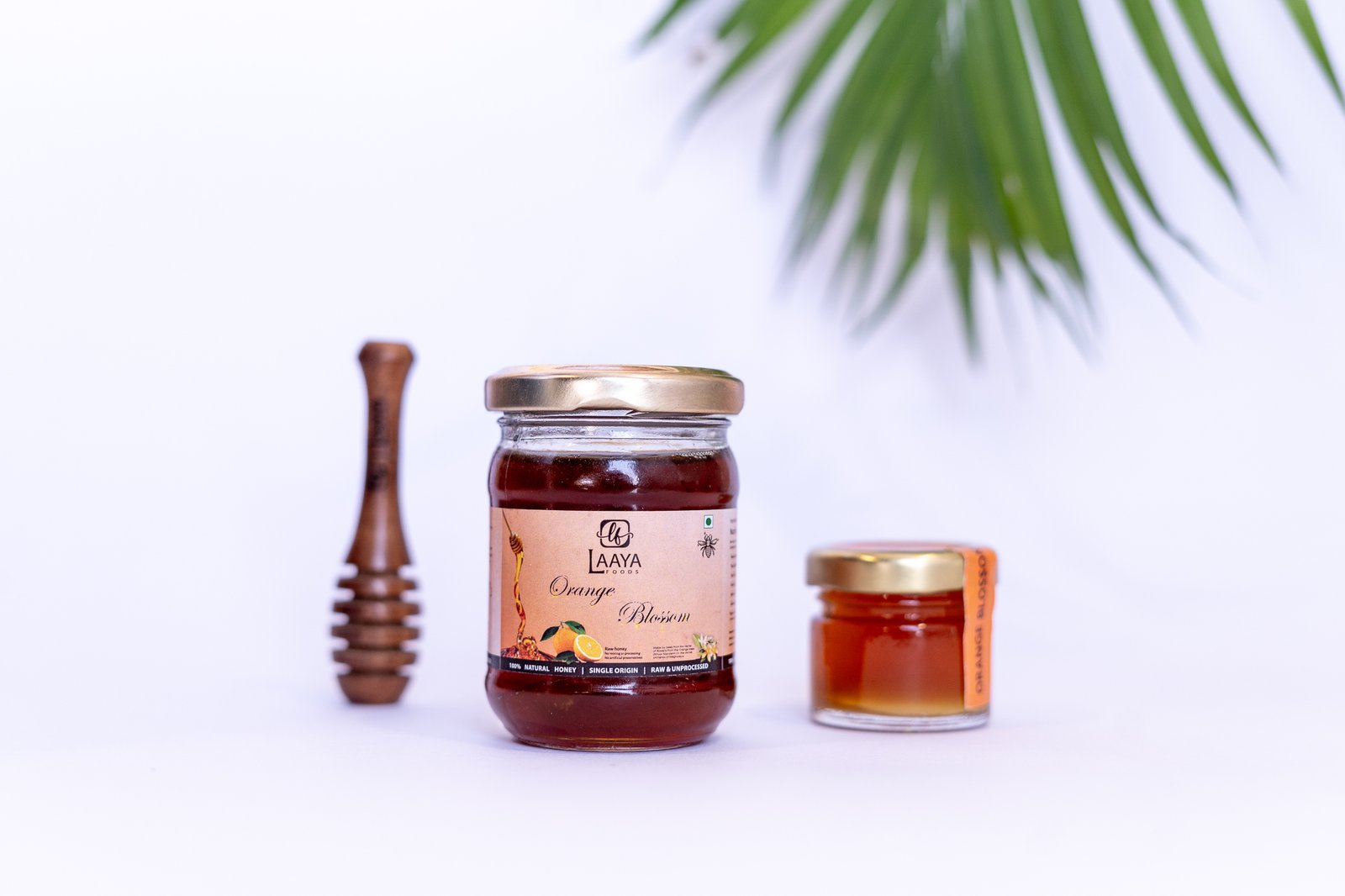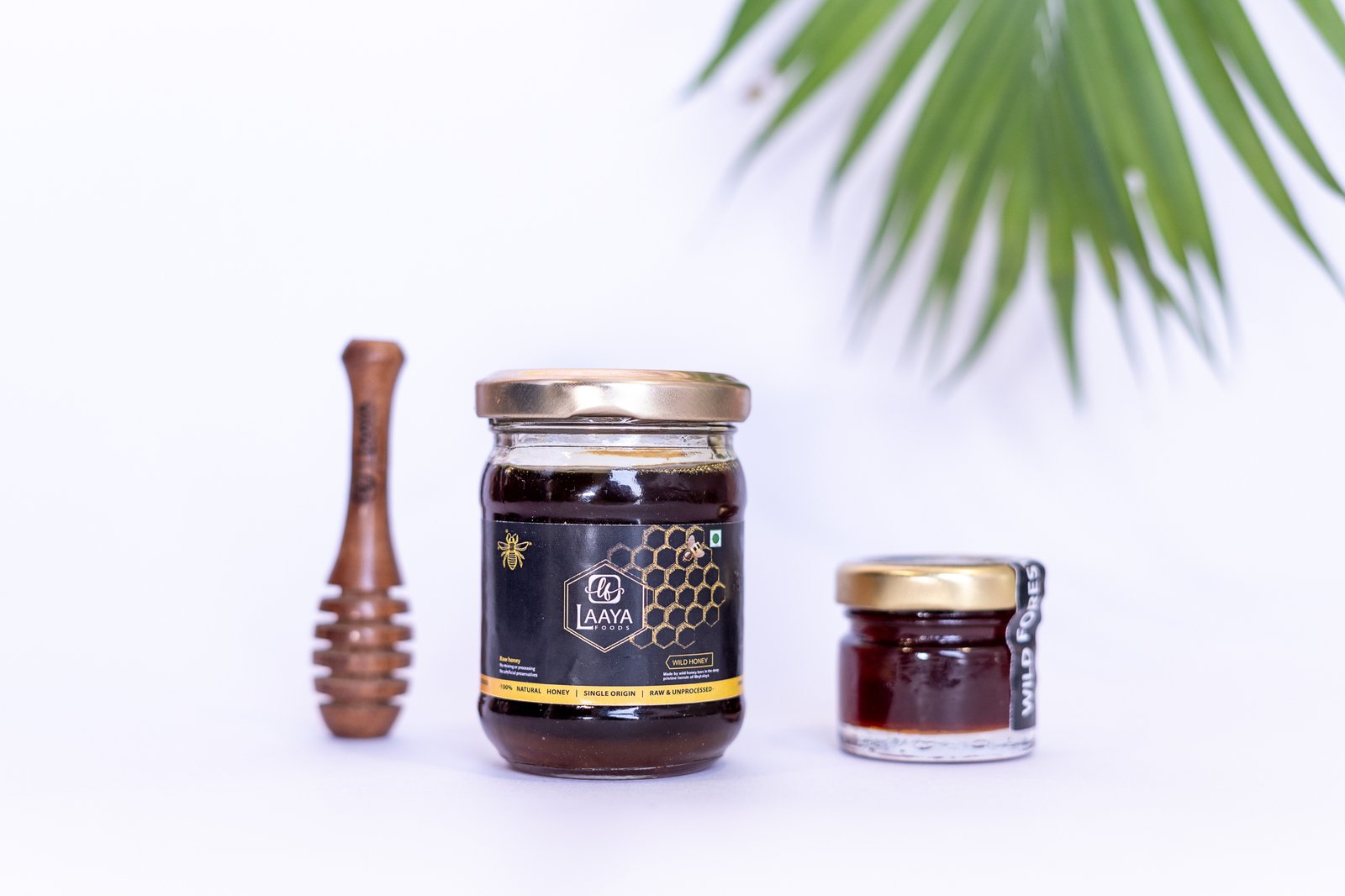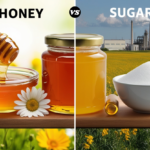When it comes to honey and sugar, we all want our tea to taste sweet—without the guilt! But which sweetener is actually better? Is honey really better than sugar, or is it just another myth? In this blog, we’ll break down the differences between honey and sugar, covering their nutrition and health effects. By the end, you’ll be ready to make a smarter choice. Let’s dive in!
Nutritional Breakdown: Honey vs. Sugar
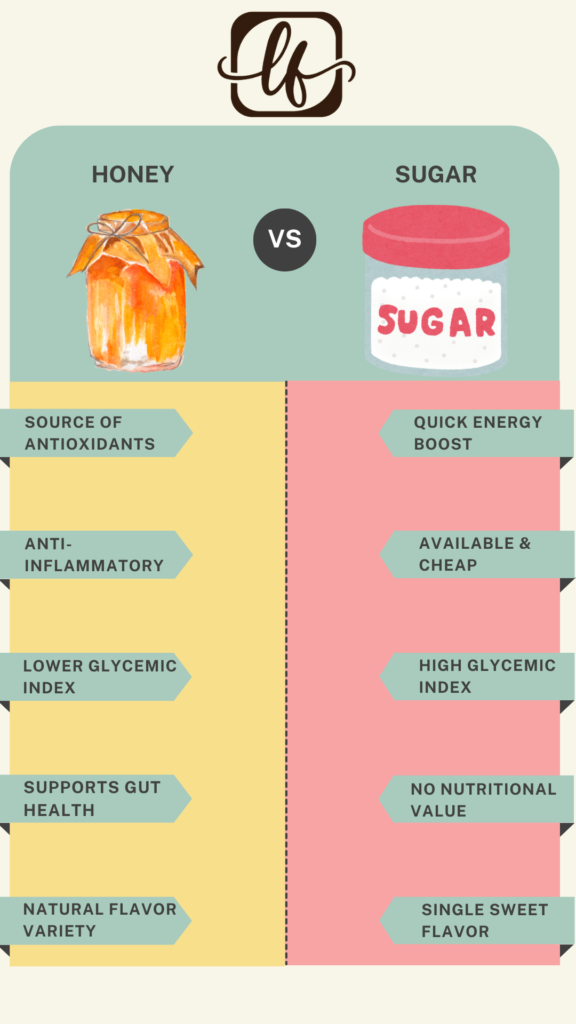
Bees collect nectar from flowers to make honey, which contains a mix of:
- Glucose
- Fructose
- Vitamins and Minerals
- Antioxidants
If you’re curious about how to pick the best honey, check out our earlier blog, “Why Purity Matters and How to Choose the Best Honey“.
On the other hand, Sugar is made entirely of sucrose.
What does that mean?
Processed sugar is pure sweetness, but that’s all it is. No vitamins, no minerals, no antioxidants. The refining process strips away any nutrients from sugar cane or beets, leaving only “empty calories.” That’s why sugar gives you energy with no nutritional value.
Empty calories refer to foods that provide a lot of energy (calories) without the nutrients your body needs to function properly. So, while sugar can satisfy your sweet tooth, it does nothing for your body beyond providing a short burst of energy—followed by an inevitable crash.
Here’s a Harvard research paper that explores the danger of consuming processed sugar.
Glycemic Index (GI) Differences
What is the Glycemic Index (GI)?
Glycemic Index (GI) measures how quickly a food raises your blood sugar. Foods with a high GI cause your blood sugar to spike fast, giving you a quick burst of energy but a crash later. On the other hand, low GI foods release sugar more slowly, giving you steady energy without the crash.
Honey has a lower Glycemic Index (GI) than sugar, meaning it doesn’t cause sharp blood sugar spikes. This can be beneficial for people managing their blood sugar levels.
- Honey’s GI: Between 50-60 (depending on the floral source)
- Sugar’s GI: A whopping 60-65
Though honey has a lower GI, moderation is still key. Choosing raw honey over processed sugar gives you more nutrients, but remember—too much of any sweetener can be bad for your health.
Health Effects: The Science Behind Honey’s Benefits
Raw honey is packed with antioxidants that protect your body from free radicals—those little troublemakers linked to ageing and disease. Honey helps reduce inflammation and shields your body from oxidative stress. Plus, its anti-inflammatory properties soothe everything from sore throats to skin issues.
People often call sugar ’empty calories’ because it can lead to weight gain and mess with your metabolism. Eating sugar regularly is linked to higher risks of diabetes, obesity, and heart disease. On the flip side, studies show that honey can actually help support better metabolic health.
Sugar? It’s like that one friend who says they’ll help, but ends up causing more problems (think weight gain and metabolic issues).
Is Honey Really Better Than Sugar for Your Digestion?
Raw Honey has prebiotic properties, which support healthy gut bacteria in your stomach and aid in digestion.
Sugar, on the other hand, feeds harmful gut bacteria and can leads to digestive issues.
Honey’s natural enzymes help break down food more easily, while Sugar, on the other hand, can mess up your gut and leave you feeling bloated and uncomfortable.
Here’s a Research paper on honey’s role in gut health.
Dental Health: Honey vs. Sugar
We’ve all learned to fear sweets when it comes to our teeth, but honey could be the exception. Thanks to its antibacterial properties, it helps protect your teeth. Meanwhile, sugar throws cavity parties in your mouth, causing far more damage. Honey, though sweet, acts as a quieter, less harmful guest.
Weight Management: Honey vs. Sugar
Honey’s complex composition is metabolized more slowly than sugar, which may help with weight management.
Sugar is digested rapidly, causing blood sugar spikes and leaving you hungry again—which can lead to weight gain.
So, if you’re asking, Is honey really better than sugar? for your health and waistline—the answer is yes.”
Link to research on honey’s role in weight management.
Misconceptions About Honey Being Just Another Sweetener
Many people think honey and sugar are the same because they’re both sweet.
However, raw honey is far more than just a sugar substitute — it’s packed with vitamins, minerals, and healing properties that sugar can’t offer.
If you’re asking “Is honey really better than sugar?” science shows raw honey has the upper hand.
Overconsumption of Processed Sugar: Why It’s a Growing Problem
Processed sugar finds its way into almost everything—from soft drinks to snacks. It’s a major cause of obesity, diabetes, and heart disease.
Raw honey, when eaten in moderation, is a nutrient-rich option without the same risks.
Switching from processed sugar to raw honey is an easy and effective way to reduce sugar intake and boost your health.
Now’s the time to make the switch!
Curious about the hidden dangers of what’s in processed honey? Check out our blog on The Hidden Dangers of Processed Honey.
The Takeaway
So, is honey really better than sugar? The answer is a big yes!
Honey doesn’t just satisfy your sweet tooth—it packs more nutrition, lowers blood sugar spikes, and gives your body vitamins, antioxidants, and gut-friendly goodness that sugar can’t.
Next time you’re reaching for processed sugar, choose wisely—for your health, your digestion, and maybe even your waistline. After all, it’s not just about sweetness, it’s about choosing what’s best for your body.
Taste The Difference
Read More….
- The Great Organic Debate: Can You Trust What You Eat?
- Everything you need to know about raw honey
- Why Purity Matters and How to Choose the Best Honey
- How Is Honey Made? Fascinating Guide to Nature’s Sweetener
- Why Does Honey Crystallize? The Truth You Need to Know
- Is Honey Really Better Than Sugar? Here’s What Science Says
- How to Use Raw Honey Every Day: 8 Delicious and Healthy Ways
- Why Bee Conservation Matter: Impact on India’s Food Security
- The Ultimate Guide to Bee-Friendly Gardening

